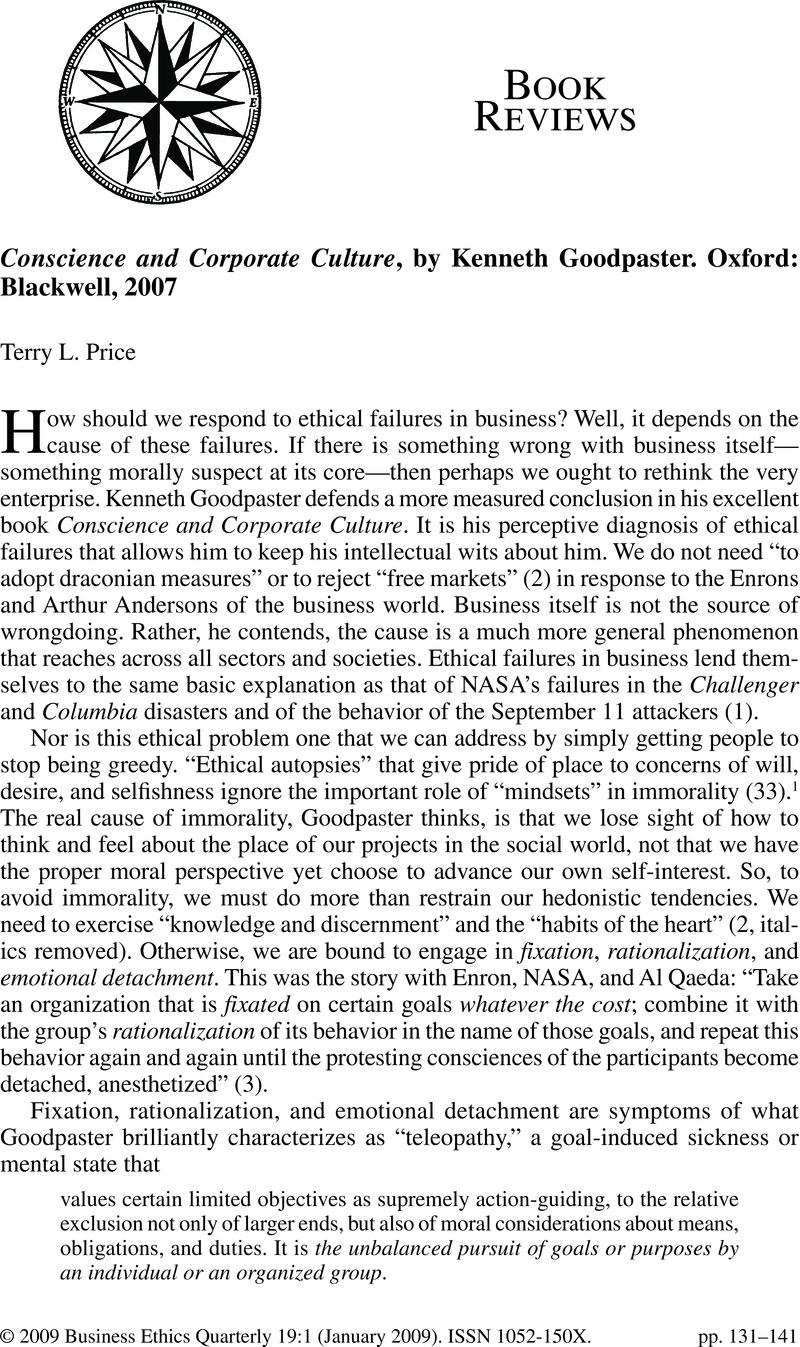No CrossRef data available.
Article contents
Conscience and Corporate Culture, by Kenneth Goodpaster. Oxford: Blackwell, 2007
Published online by Cambridge University Press: 23 January 2015
Abstract

- Type
- Book Review
- Information
- Copyright
- Copyright © Society for Business Ethics 2009
References
Notes
1. “Ethical autopsy” is from Allen, Buchanan, Dan, W. Brock, Norman, Daniels, and Daniel, Wickler, From Chance to Choice: Genetics and Justice (Cambridge: Cambridge University Press, 2000), 11.Google Scholar
2. Irving, L. Janis, Groupthink: Psychological Studies of Policy Decision and Fiascoes, 2nd edition (Boston: Houghton Mifflin Company, 1982);Google Scholar and Patricia, H. Werhane, Moral Imagination and Management Decision-Making (Oxford: Oxford University Press, 1999).Google Scholar See also Terry, L. Price, Understanding Ethical Failures in Leadership (New York: Cambridge University Press, 2006).Google Scholar
3. Crystal, L. Hoyt, Terry, L. Price, and Alyson, E. Emrick, “Leadership and the More-Important-than-Average Effect.” Manuscript in preparation.Google Scholar
4. I owe this argument to my father, Glenn Price, though my colleague Peter Kaufman tells me it has Augustinian roots.
5. See Terry, L. Price, Leadership Ethics: An Introduction (Cambridge: Cambridge University Press, 2008).Google Scholar
6. Michael, Walzer, “Political Action: The Problem of Dirty Hands,” Philosophy and Public Affairs 2 (1973): 160–80.Google Scholar
7. Hannah, Arendt, Eichmann in Jerusalem (New York: Viking Press, 1963).Google Scholar
8. Arendt notes his “clownery” in Eichmann in Jerusalem, 54. For a discussion of the conscientiousness of leaders such as Heinrich Himmler, see Jonathan, Bennett, “The Conscience of Huckleberry Finn,” Philosophy 49 (1974): 123–34.Google Scholar
9. Arendt, Eichmann in Jerusalem, 49.
10. Josiah, Royce, The Religious Aspect of Philosophy (Boston: Houghton, Mifflin and Company, 1885), 56.Google Scholar
11. Ibid., 155–56.




